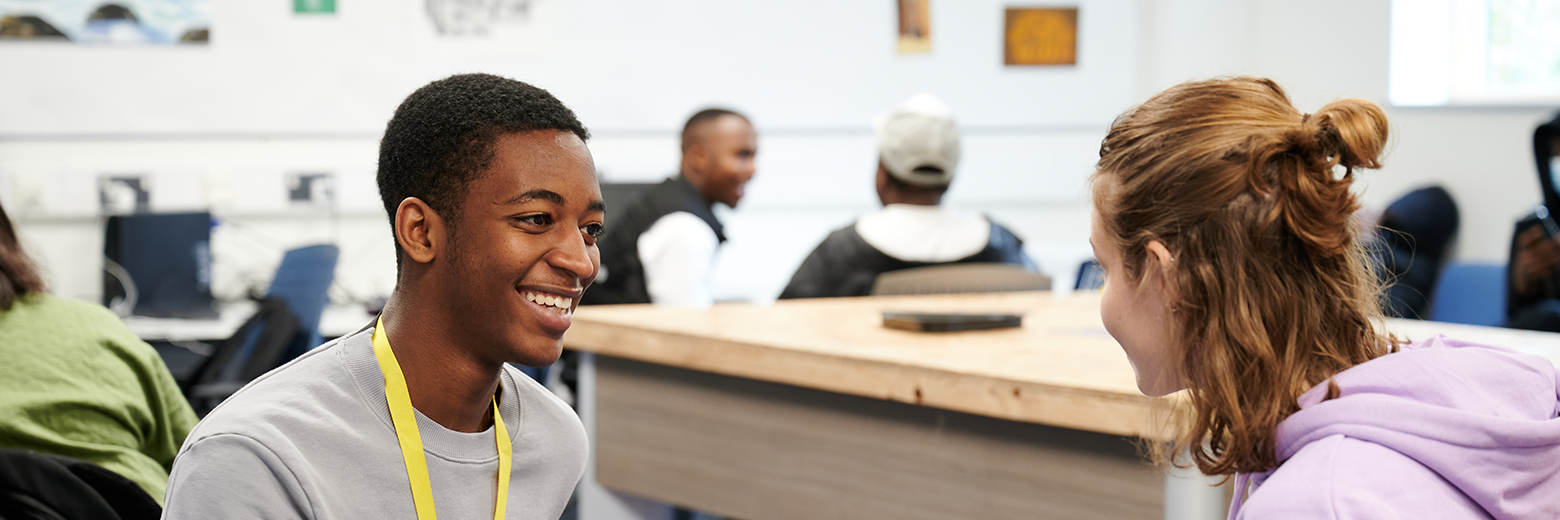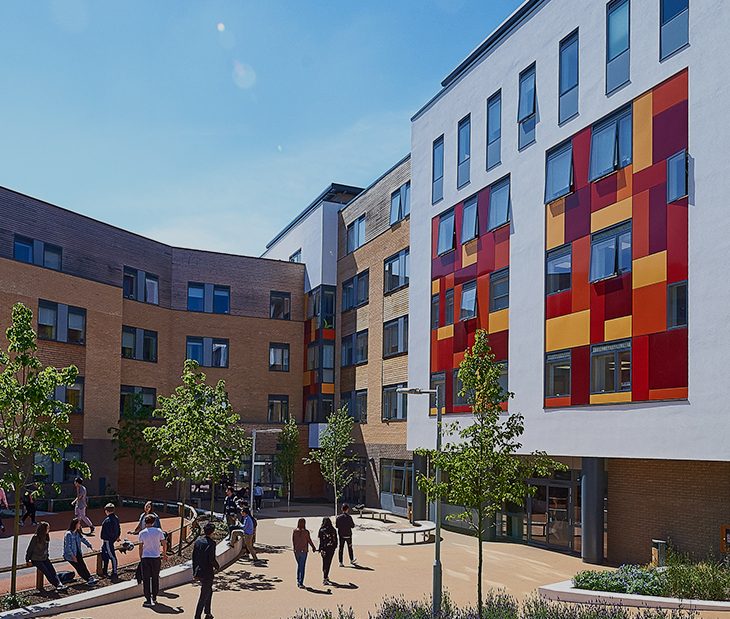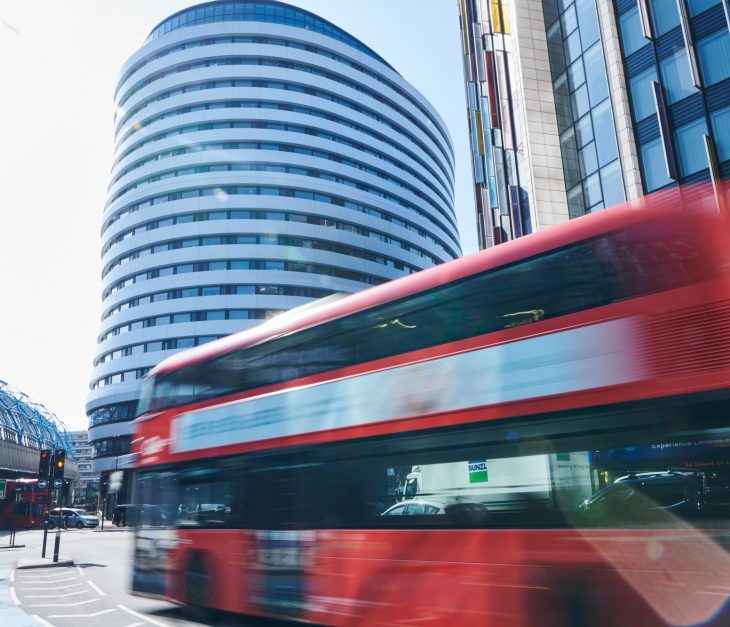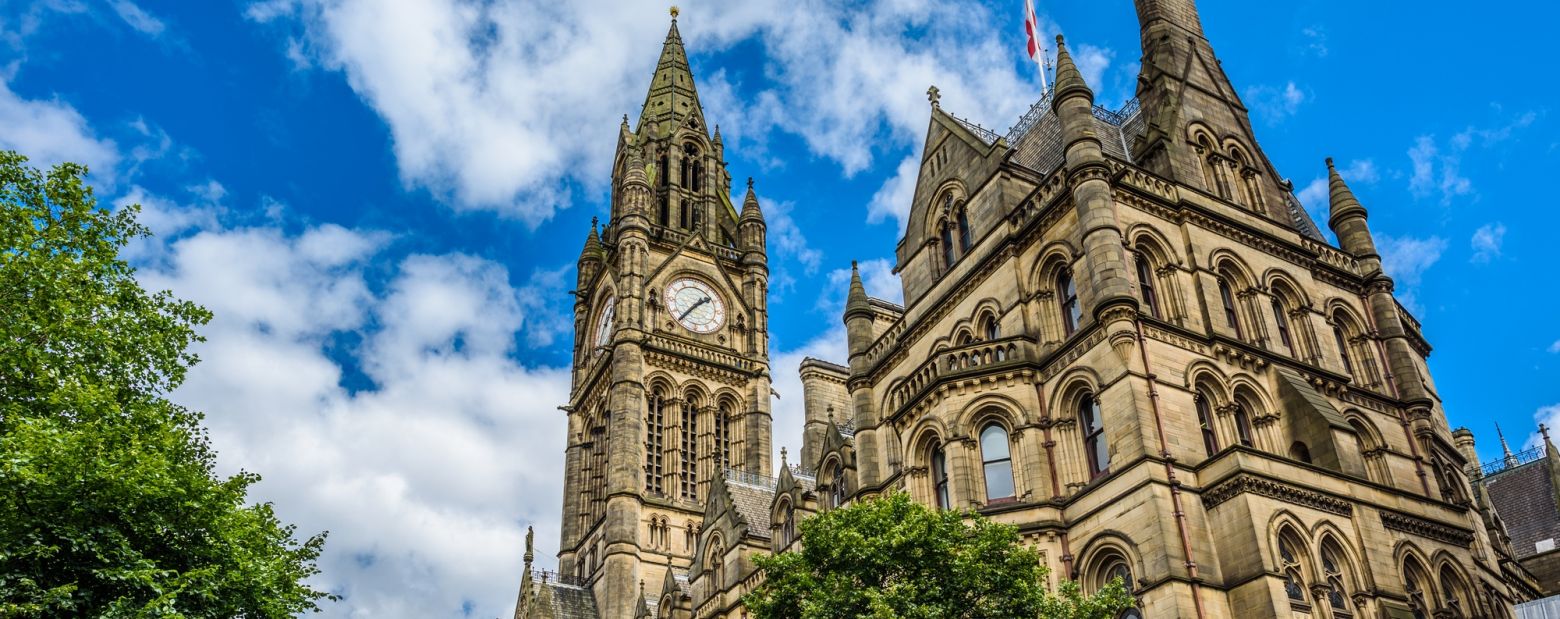Unlocking Global Education: A Comparison of the Moroccan and UK Education Systems for Moroccan Students
10th March 25
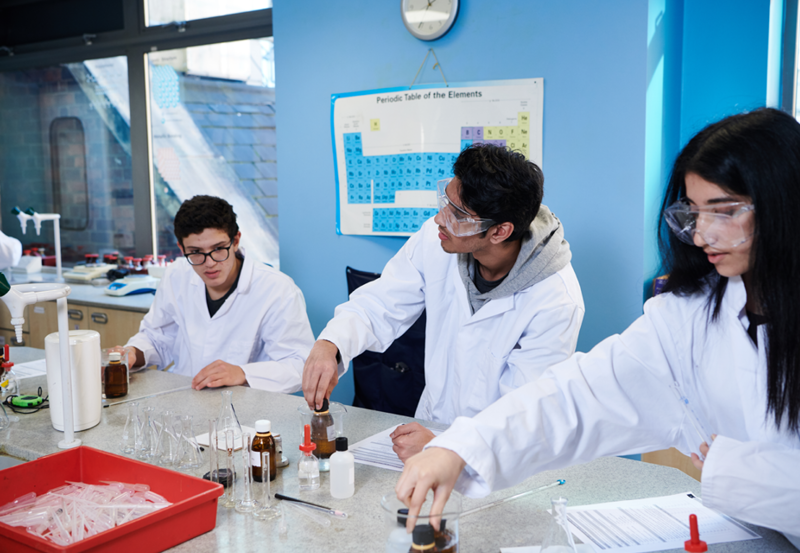
Introduction: The Growing Appeal of UK Education for Moroccan Students
Moroccan students are increasingly looking beyond their borders to pursue high-quality education that offers global recognition, career opportunities, and academic flexibility. The UK, known for its world-class universities, research-driven curriculum, and international student-friendly approach, is a prime destination for those who wish to elevate their education and broaden their horizons.
However, transitioning from the Moroccan education system to the UK’s highly flexible and independent learning model can be a significant adjustment. Understanding these differences is essential for students and their parents as they explore the best academic pathways.
This guide provides a detailed comparison of the Moroccan and UK education systems, highlighting key differences in structure, assessment, and university preparation. If you are a Moroccan student aiming to study in the UK, this guide will help you understand how the British education system can prepare you for success at world-renowned universities and beyond.

Understanding the Moroccan Education System
The Moroccan education system is structured and examination-focused, with a curriculum set by the Ministry of National Education. The system consists of:
- Primary Education (École Primaire) – Ages 6-12
- Students complete six years of primary education, focusing on Mathematics, Arabic, French, Science, and History.
- A strong emphasis is placed on memorisation and theoretical knowledge, with limited opportunities for independent research and creative thinking.
- Students take an internal school exam at the end of primary education to progress to middle school.
- Middle School (Collège) – Ages 12-15
- Middle school lasts three years, covering subjects like Physics, Chemistry, Geography, and Civic Education.
- At the end of middle school, students take the Diplôme du Collège, an exam that determines their eligibility for high school.
- Secondary Education (Lycée) – Ages 15-18
- Secondary school is three years long, with students choosing a specialisation track such as Science, Literature, or Technical Studies.
- The final year is dominated by preparation for the Baccalauréat (BAC) exam, which is required for university entry in Morocco and many other countries.
- The BAC is known for its rigorous exam structure, where students must demonstrate extensive knowledge across multiple subjects.
The Moroccan education system offers a strong theoretical foundation, and students can further enhance their learning experience by incorporating more practical applications, independent research, and coursework-based assessments—key strengths of the UK education model.
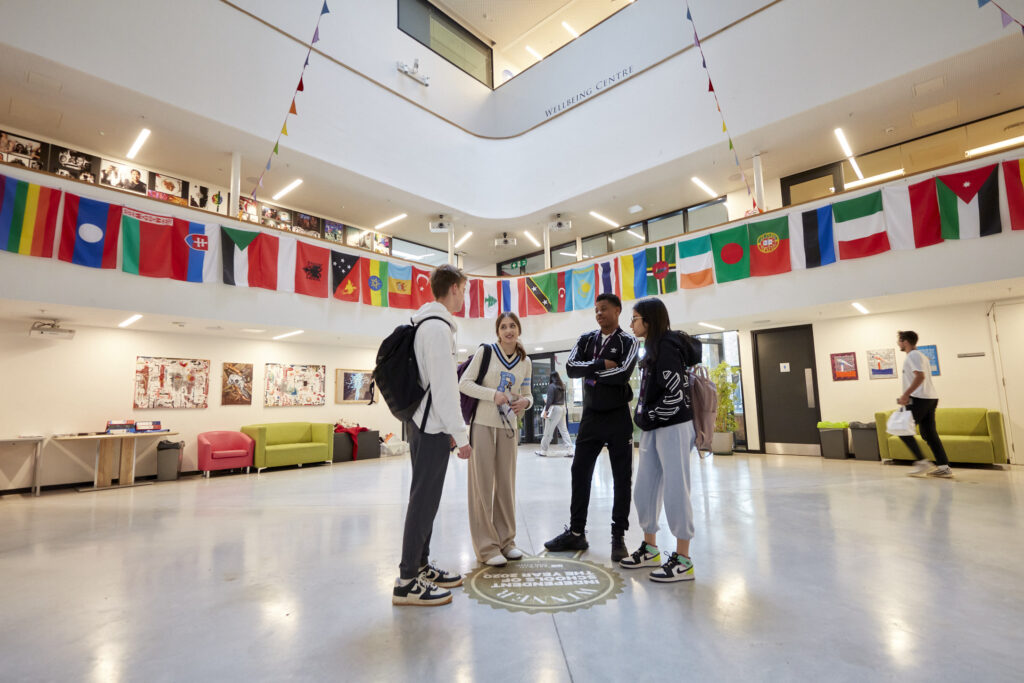
The UK Education System: A More Flexible and Independent Learning Approach
The UK education system differs significantly from Morocco’s, offering early specialisation, coursework-based assessment, and a focus on analytical thinking. Here’s how it is structured:
- Primary and Secondary Education (Ages 5-16)
- UK students begin formal education at age 5 and complete primary school by age 11.
- From ages 11-16, students attend secondary school, where they study a broad curriculum, including English, Mathematics, Sciences, and Humanities.
- At age 16, students take General Certificate of Secondary Education (GCSE) exams, marking the end of compulsory education.
- Sixth Form (Ages 16-18) – The Specialisation Period
- Students who wish to attend university take A-Levels, specialising in three or four subjects that align with their future degree.
- Alternatively, students can opt for a BTEC Diploma, a career-focused qualification that is more practical and coursework-based.
- The International Foundation Programme (IFP) is another option for international students who need a fast-track university entry route.
- University Education (Ages 18+)
- Undergraduate degrees in the UK typically last three years, with exceptions such as Engineering or Medicine, which require longer study periods.
- UK universities encourage self-directed learning, critical thinking, and real-world applications, preparing students for competitive job markets.
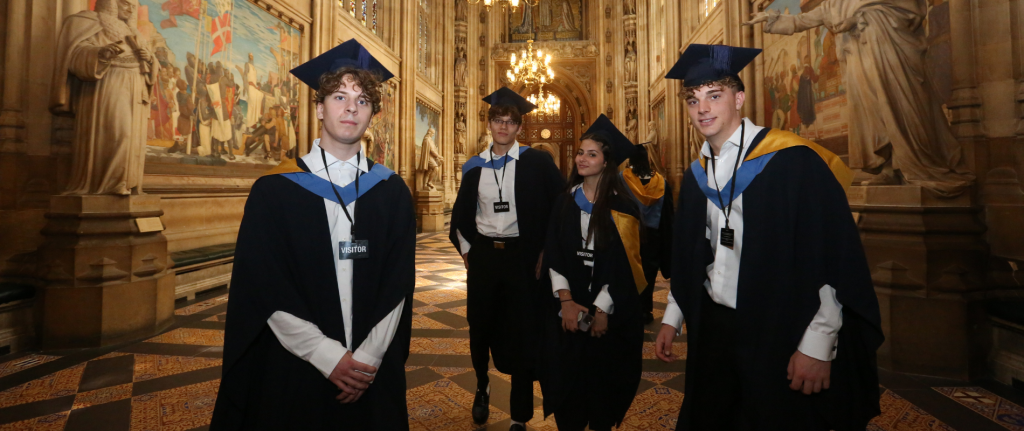
Key Differences Between the Moroccan and UK Education Systems
| Morocco | United Kingdom | ||||
| Age | Year | Schools | Age | Year | Schools |
| 3-6 | École Maternelle | Pre-School | 3-4 | Nursery | Nursery |
| 4-5 | Reception | Reception | |||
| 6-7 | 1ère Année Primaire | Primary School (6 Years) | 5-6 | Year 1 | Primary School (6 Years) (Key Stage 1-2) |
| 7-8 | 2ème Année Primaire | 6-7 | Year 2 | ||
| 8-9 | 3ème Année Primaire | 7-8 | Year 3 | ||
| 9-10 | 4ème Année Primaire | 8-9 | Year 4 | ||
| 10-11 | 5ème Année Primaire | 9-10 | Year 5 | ||
| 11-12 | 6ème Année Primaire | 10-11 | Year 6 | ||
| 12-13 | 1ère Année Collège | Middle School (3 Years) | 11-12 | Year 7 | Secondary School (5 Years) (Key Stage 3-4) |
| 13-14 | 2ème Année Collège | 12-13 | Year 8 | ||
| 14-15 | 3ème Année Collège | Diplôme du Collège | 13-14 | Year 9 | |
| 15-16 | 1ère Année Lycée | High School (3 Years) | 14-15 | Year 10 | GCSEs (Key Stage 4) |
| 16-17 | 2ème Année Lycée | 15-16 | Year 11 | ||
| 17-18 | 3ème Année Lycée | Baccalauréat (BAC) Exam | 16-17 | Year 12 | Sixth Form (2 Years) A-Levels (Key stage 5) |
| 17-18 | Year 13 | ||||
Why Study in the UK? Key Benefits for Moroccan Students
- Early Specialisation
In Morocco, students choose their study track in their final years of high school. In the UK, specialisation begins earlier, allowing students to build expertise in subjects that align with their university and career ambitions.
- Practical and Research-Based Learning
Unlike Morocco’s exam-heavy approach, UK education encourages interactive learning, independent research, and coursework-based assessment.
- Access to Top Universities and Career Opportunities
With internationally recognised qualifications, UK graduates have strong career prospects and access to global job markets.
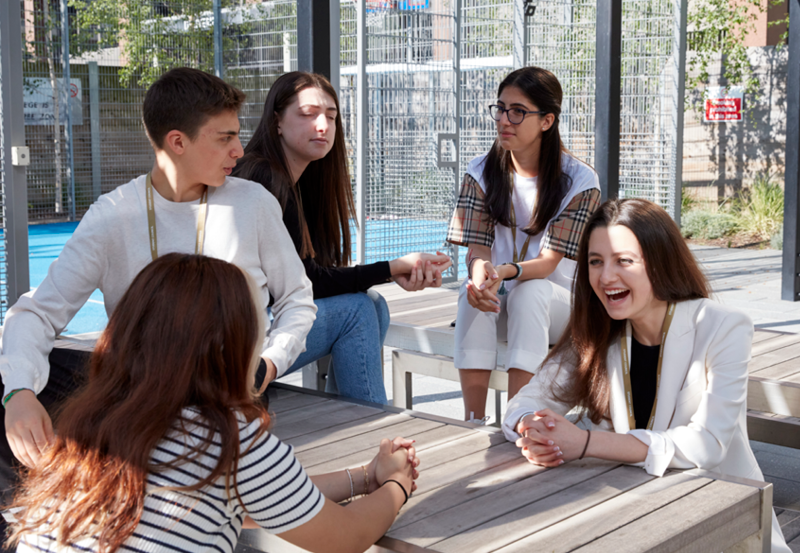
Why Choose Abbey DLD Colleges? A Tailored Experience for Moroccan Students
Abbey DLD Colleges offer structured academic programmes and university preparation, ensuring Moroccan students receive an exceptional UK education experience. Here’s what sets us apart:
- Personalised Study Pathways: Choose between A-Levels, IFP, or BTEC Diplomas, tailored to individual career goals.
- Expert Academic Guidance: One-on-one mentorship with UCAS applications, subject selection, and career planning.
- A Thriving International Student Community: A diverse student body, helping Moroccan students integrate smoothly into UK academic life.
- Extracurricular & Career Development: Access to debating clubs, leadership programmes, and internships to enhance university applications.
- Prime Locations for Study & Growth:
- Abbey College Cambridge – Ideal for STEM and Medicine-focused students.
- Abbey College Manchester – A strong foundation for Business, Science, and Creative subjects.
- DLD College London – A prestigious hub for students interested in Finance, Arts, and Digital Media.
- Premium Boarding Facilities: Safe, modern accommodations with 24/7 student support, ensuring a secure and welcoming environment.
BLOG AUTHOR

Wisam Afisa
Senior International Regional Manager (Middle East, Africa & Americas)
E: Wisam.Afisa@abbeydld.co.uk
T: +44 7935 133465
Final Thoughts: Is the UK the Right Study Destination for Moroccan Students?
For Moroccan students seeking a flexible, globally recognised qualification that enhances university and career prospects, the UK offers a world-class education experience. With structured learning, early specialisation, and top-tier university pathways, Abbey DLD Colleges prepare students for academic and professional success.
Contact us today to explore how Abbey DLD Colleges can help you achieve your academic ambitions!


